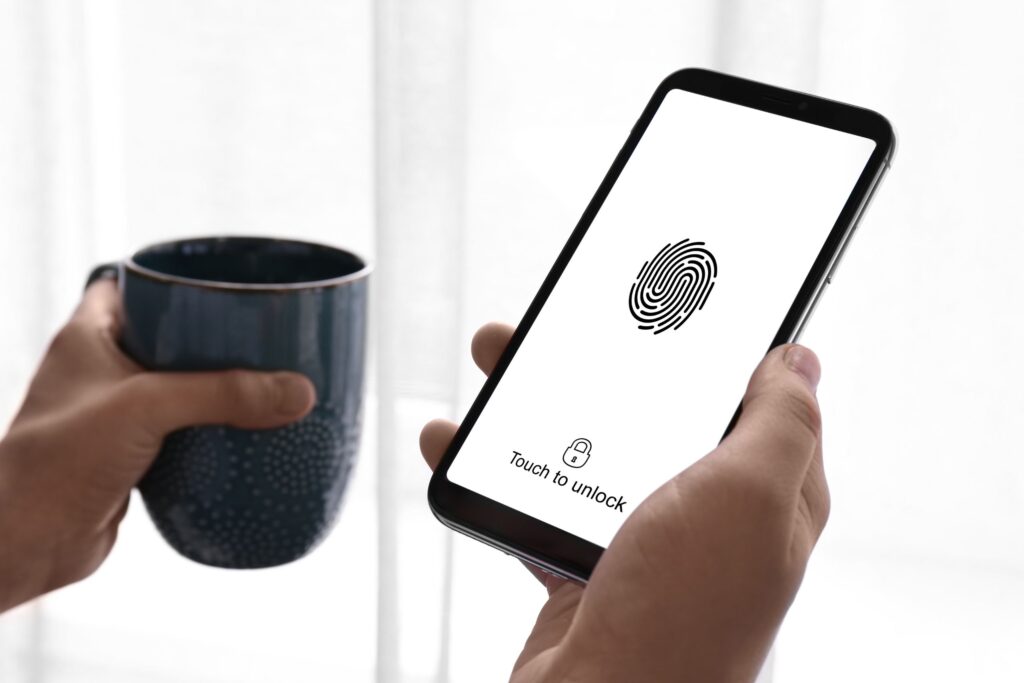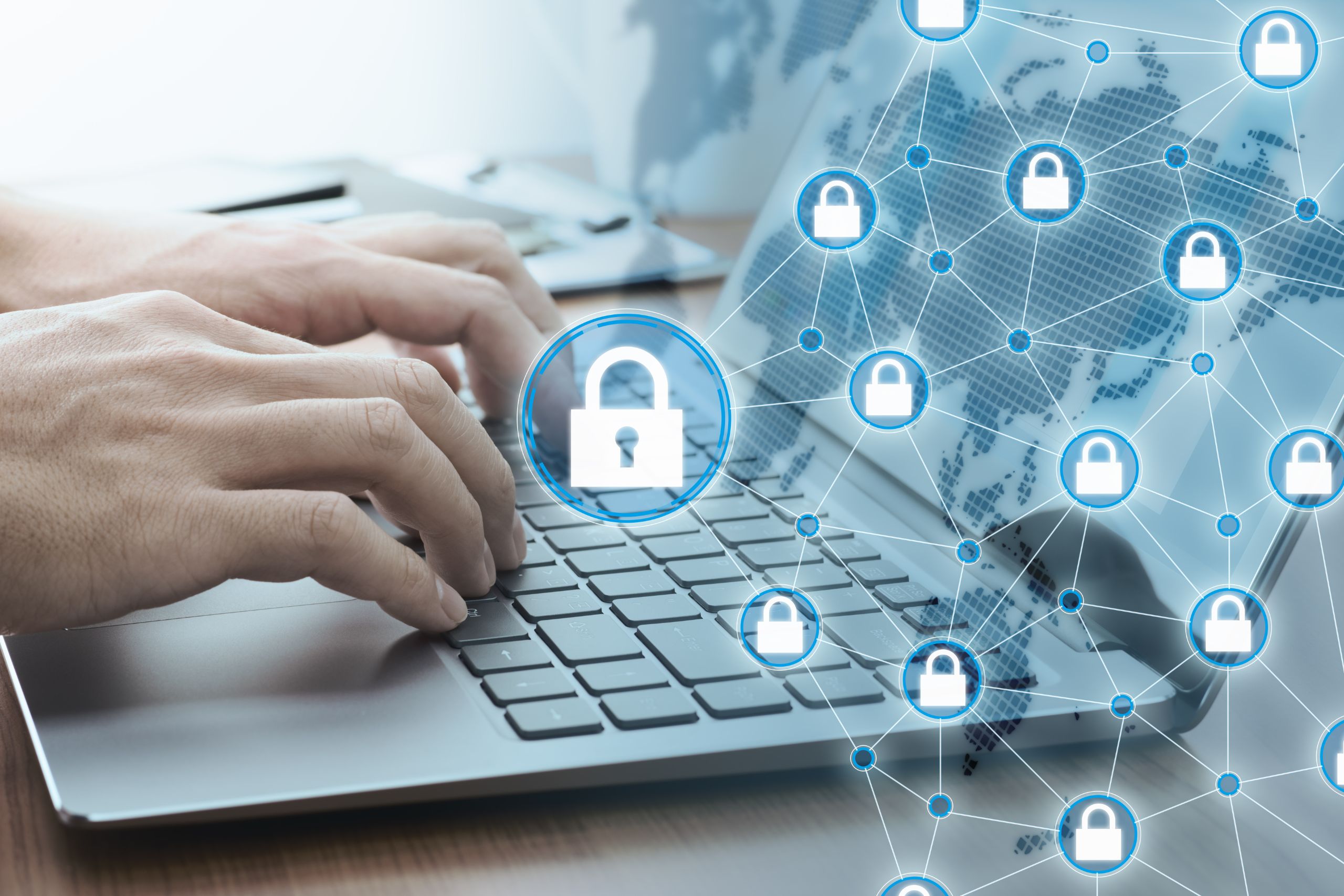In an increasingly digital world, the security of our personal information is of utmost importance. How can we protect our digital identities from cyber threats and unauthorized access? The answer may lie in blockchain technology.
Blockchain, the technology behind cryptocurrencies like Bitcoin, has gained significant attention in recent years. Its decentralized and transparent nature has made it a promising solution for various industries, including cybersecurity. One area where blockchain shows great potential is in securing digital identities.
Digital identities have become a crucial part of our lives, from online banking to social media accounts. However, traditional methods of identity verification often fall short in terms of security. Blockchain offers a new approach to protecting our digital identities, ensuring privacy, and preventing identity theft. This article will explore the role of blockchain in securing digital identities and how it can revolutionize the way we protect our personal information online.
What is Digital Identity?
In today’s digital age, a person’s digital identity refers to the unique set of attributes, credentials, and personal information that are associated with them online. This includes everything from usernames and passwords to biometric data and transaction histories. The management of digital identity is crucial in various sectors such as finance, healthcare, and government, as it plays a key role in customer on-boarding, fraud prevention, and citizen services.
Digital identity management involves the use of advanced technologies, such as blockchain, to securely store and verify individuals’ identities. This ensures that only authorized users can access sensitive information, reducing the risk of fraudulent activity and identity theft.
In customer on-boarding, digital identity verification helps businesses streamline the process of identifying and authenticating new customers, making it easier and more secure for individuals to access services and make transactions. Additionally, in citizen services, digital identity plays a vital role in providing secure and efficient access to government benefits, licenses, and other essential services.
Overall, the concept and management of digital identity are crucial in today’s digital world, as they enable businesses and government entities to establish trust, prevent fraud, and provide convenient services to individuals.

Benefits of Using Blockchain Technology for Digital Identity Management
Blockchain technology offers various benefits for digital identity management. Enhanced security and privacy are prominent advantages, as the decentralized and cryptographic nature of blockchain makes it extremely difficult for unauthorized access or tampering of identity information. Additionally, interoperability and streamlined identity verification are improved through blockchain, as it allows for the seamless sharing and validation of identity data across different platforms and organizations.
Global identity inclusion is another key benefit, as blockchain technology enables individuals in underserved regions to establish a secure and verifiable digital identity. Furthermore, the reduction of identity fraud is a significant advantage, as the immutability and transparency of blockchain records make it significantly harder for malicious actors to falsify identities or create fraudulent records.
The transparent and auditable nature of blockchain-based identity management also ensures that all identity-related transactions and changes are recorded and can be audited, providing a higher level of accountability and trust. Moreover, the resilience of blockchain ensures that identity data remains accessible even in the face of system failures or cyberattacks, further enhancing the dependability of digital identity management systems. Overall, the advantages of using blockchain technology for digital identity management include improved security, portability, and resilience, making it a compelling solution for modern identity management challenges.
Types of Blockchain-Based Digital Identities
There are two main types of blockchain-based digital identities: self-sovereign identities and SBT-based identities. Self-sovereign identities are decentralized digital identities that put the individual in control of their own identity information. They are built on the principles of privacy, security, and user control. SBT-based identities, on the other hand, are identity solutions that utilize blockchain technology to verify and authenticate the identity of individuals or entities.
Dock built its own digital identity blockchain to address the challenges of existing digital identity solutions. The Dock blockchain offers speed, cost-effectiveness, and customization, making it a scalable and efficient solution for digital identity management. Furthermore, Dock’s precedence in the blockchain industry allows it to leverage its expertise and experience to create a digital identity blockchain that meets the demands of businesses and individuals.
Potential of Blockchain for Securing Online Identities
In an age where online security is of utmost importance, the potential of blockchain for securing online identities has become a topic of great interest. The decentralized nature of blockchain technology and its ability to provide verifiable and tamper-proof records make it an ideal solution for online identity verification. By leveraging blockchain, individuals can have greater control over their personal data and be assured of its security and privacy. This has the potential to revolutionize the way online identities are managed, offering a more secure and reliable method for authentication and verification.
Enhanced Security and Reduced Risk of Identity Theft
Blockchain-based digital identity verification enhances security in the banking industry by providing a secure and tamper-proof method of verifying customer identities. By utilizing blockchain technology, banks can eliminate the need to store and manage sensitive customer information, reducing the risk of unauthorized access and potential data breaches. The decentralized nature of blockchain ensures that customer data is securely stored across a distributed ledger, making it virtually impossible for hackers to breach and compromise a single point of entry.
Additionally, blockchain’s secure authentication methods, such as cryptographic verification, further reduce the risk of identity theft. These methods provide a high level of trust and privacy for customers, making it difficult for unauthorized individuals to gain access to personal information. By leveraging blockchain for digital identity verification, the banking industry can significantly mitigate the risk of identity theft and enhance overall security for its customers.
Improved User Experience Through Centralized Systems
Centralized systems can greatly improve the user experience by streamlining the login process and reducing the need for multiple passwords. With a centralized system, users can access multiple applications and domains with a single set of login credentials, eliminating the hassle of remembering and entering different passwords for each platform. This not only saves time for the users but also provides a more secure login process by minimizing the risk of password-related security breaches.
Furthermore, centralized systems offer a seamless and consistent user experience across different applications and domains. Once a user is logged in, they can easily navigate through various platforms without the need to repeatedly enter their credentials. This creates a more efficient and convenient experience for users, as they can seamlessly switch between different applications and domains without any interruptions or barriers.
Overall, centralized systems greatly enhance the user experience by simplifying the login process and providing a consistent and seamless experience across different platforms. Users can enjoy a more efficient and secure experience while reducing the frustration of managing multiple passwords.
Increased Regulatory Compliance Through Central Authority Control
One way to ensure increased regulatory compliance is to implement a centralized system for verifying and storing identity data. By establishing a central authority to control this data, organizations can streamline the verification process and ensure accuracy and consistency in the information being used for regulatory compliance. This centralized approach allows for a more efficient and secure method of managing identity data, reducing the risk of errors and fraudulent activity.
Using a central authority for verification purposes can also provide numerous benefits. It allows for a more standardized and reliable method of verifying identity data, reducing the potential for errors and discrepancies. This, in turn, can help organizations meet regulatory requirements more effectively and efficiently, minimizing the risk of non-compliance.
Overall, implementing a centralized system for verifying and storing identity data under central authority control can greatly contribute to improved regulatory compliance. The centralized approach provides organizations with a more reliable and secure method of managing identity data, ultimately leading to more efficient and effective regulatory compliance processes.
Advantages & Disadvantages of Decentralized Nature of Blockchain Networks
The decentralized nature of blockchain networks offers numerous advantages for digital identity management. The security benefits include cryptographic verification, immutability, and resilience to single points of failure, reducing the risk of identity theft and fraud. Additionally, the distributed architecture enhances privacy by giving individuals more control over their personal data.
However, the decentralized nature also comes with potential cybersecurity risks, such as 51% attacks and smart contract vulnerabilities. Additionally, the lack of a centralized authority can lead to interoperability challenges, making it difficult to standardize digital identity management across different blockchain platforms.

Conclusion
In conclusion, the use of blockchain technology for digital identity security is widely seen as a promising solution. Blockchain helps to secure digital identities by providing robust authentication methods, improved data privacy and control, and improved data integrity. Additionally, it can provide an immutable record of all transactions related to digital identities, which can help ensure that no one else can modify them without authorization. Although the technology is still in its early stages of development, it has the potential to revolutionize how digital identities are managed in the future. The implementation of blockchain technology for digital identity security needs to be carefully monitored and governed by governments and agencies worldwide to ensure its effectiveness and reliability. This is the only way that we can ensure a secure digital identity system in our increasingly digitized world.

